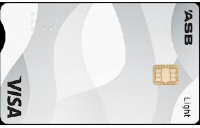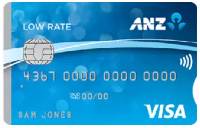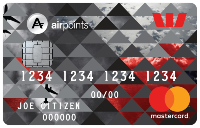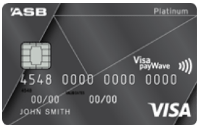Best balance transfer credit cards
Compare NZ balance transfer credit cards (including 0% interest cards) and find the best deal for you.

The breakdown
- A balance transfer can be a great way to pay off credit card debt.
- 0% balance transfer credit cards sound great, but a card with a low rate over a longer repayment period might be better if you can’t pay it off in time.
- Avoid using a balance transfer credit card for shopping — these transactions will accumulate interest at a high rate and make it more difficult to pay off your debt.
Author: Kevin McHugh, Head of Publishing at Banked.
Compare balance transfer credit cards
Compare all of NZ’s balance transfer credit cards below. If you’re looking for another type of card, check our comparison guide for all credit cards.
| Credit card | Balance transfer offer | Purchase interest rate (p.a.) | Annual fee | Promotions |
|---|---|---|---|---|
 ASB Visa Light
ASB Visa Light
|
0% p.a. for 6 months | 13.50% | $0 | N/A |
 ANZ Low Rate Visa
ANZ Low Rate Visa
|
1.99% p.a. for the first two years | 13.90% | $0 | N/A |
 Co-operative Bank Fair Rate
Co-operative Bank Fair Rate
|
0% p.a. for 6 months | 12.95% | $20 | N/A |
 Kiwibank Zero Visa
Kiwibank Zero Visa
|
1.99% p.a. for 6 months | 12.90% | $0 | N/A |
 Westpac Airpoints Mastercard
Westpac Airpoints Mastercard
|
5.95% p.a. for the life of the balance. | 20.95% | $70 | Earn 1 Airpoints dollar for every $150 spent |
 ASB Visa Platinum Rewards
ASB Visa Platinum Rewards
|
0% p.a. for 6 months | 19.95% | $80 | Earn 1 True Rewards per $100 spent, or 1 Everyday Rewards point per $1 spent |
What is a balance transfer?
A balance transfer is using available credit on one credit card to pay off another. Balance transfer credit cards let you pay off debt from another credit card or store card at a much lower interest rate.
Some credit cards will charge you between 2% and 6% for as long as 2 years or until the balance is fully paid off. Other credit cards charge 0% on balance transfer, but for a shorter time — usually around 6 months for NZ credit cards.
A balance transfer can be a great way to pay down credit card debt, but it’s important to pick the right card and manage your repayments to unnecessary fees and interest.
5 top tips for getting the best balance transfer credit card
1. A 0% balance transfer card is not always the right choice.
In countries like Australia and the UK, many balance transfer credit cards offer 0% on balance transfers for as long as 36 months. In New Zealand, we’re not so lucky and 0% interest deals usually only go up to 6 months.
Remember that once the 0% interest period ends, you’ll be charged the standard purchase interest rate (around 18% on average, according to the RBNZ) on the rest of the balance.
This means that to get the best balance transfer credit card, Kiwis shouldn’t automatically choose the 0% card — we have to think smarter.
Here are 2 example credit card deals:
- Card 1: 0% interest for 6 months (reverting to 19.95% after that)
- Card 2: 1.99% interest for 24 months
If you could pay off the entire balance over 6 months, or very shortly after, Card 1 is the best deal. But if you were to pay off the balance over 12 months, Card 2 would save you much more on interest and so is the better deal.
Check out Sorted’s credit card interest calculator for an idea of how much interest you would pay on different credit card deals.
2. Keep an eye out for special balance transfer promotions
While 0% for 6 months is a fairly common balance transfer offer among credit card companies in New Zealand, 0% for 12 months deals do pop up sometimes.
These promotions are only available for a limited time (a month or two) and it’s not uncommon for there to be no 0% for 12 months balance transfer deals on the market.
If it’s the right transfer deal for your needs, it’s definitely worth checking what each credit card company is offering on a regular basis.
3. Avoid the annual fee
Annual fees are a fact of life for many credit cards, but they shouldn’t be if you want a card for a balance transfer.
Usually, all banks in New Zealand have one credit card offer that is available across all of their cards. For example, ASB’s balance transfer offer applies to its Visa Light and its Visa Platinum Rewards credit cards.
Also, almost all banks have at least one credit card that has no annual fee. So the best tactic in most situations is to identify which bank has the right balance transfer deal for your needs, then choose its no annual fee card.
The added bonus of this approach is that credit cards with no annual fee are also more likely to have a low purchase interest rate. This means that if you can’t pay off the full balance within the promotional period, the interest rate the balance reverts to won’t be as high as with other cards.
4. Aim to pay off the balance in the low or 0% interest period
If you don’t pay off the full transferred balance within the advertised balance transfer period, you will be charged the credit’s standard purchase interest on the remaining amount.
How much extra you then pay in interest will depend on your credit card’s rate, the amount outstanding, and how long it then takes you to pay off. But simply put, it’s money that’s better off in your pocket.
Plan to pay off your transferred balance in full in this period. If you still have a significant amount outstanding, consider transferring the balance again to another credit card.
5. Don’t spend on your balance transfer credit card
The rate you get on a balance transfer does not apply to any purchases or cash withdrawals you make on the card. These transactions will attract a much higher rate of interest — around 13% to 24%, depending on the card.
If you did spend on the same card you made your balance transfer with, the transferred balance and the other transaction you made would accumulate interest at different rates. This is important to remember.
While it varies from bank to bank, your credit card repayment will often be used to pay off the part of your balance with the lowest interest rate first. This means that any purchase or cash withdrawal you make on your balance transfer credit card would be the last part to be paid off, so it will accumulate interest at the highest rate for the longest possible time.
Getting a balance transfer credit card if you have bad credit
Unlike some lenders, there are no credit card companies in New Zealand that advertise that they welcome applications from those with bad credit.
You may be able to get a balance transfer credit card if your credit history is weak, but it depends how weak. Find out what your credit score is for free at one of these credit reporting companies:
If you have recently applied for credit elsewhere and been rejected, it’s unlikely you will be approved for a balance transfer credit card.
If you haven’t applied for credit recently, and your credit score is not too low, it’s worth applying. However, be careful about making multiple applications.
Applying for credit does have an impact on your credit score, but it will only really be an issue if you make multiple applications in a short period of time. If you are rejected for credit, take some time to improve your credit before trying again.
Alternative to a balance transfer: A debt consolidation loan
A debt consolidation loan is another way of paying off debt and may be a better choice for you if you have more than just credit and store card debt.
A debt consolidation loan lets you pay off other debts (including credit card debt) you may have with one loan. The aim is to make repayments more manageable as you only have to make one regular repayment instead of several.
Ideally, a debt consolidation loan will also help you save money by having an interest rate that’s lower than the debts you want to pay off.
Learn more and compare debt consolidation loans in our guide.
So should I choose a balance transfer credit card, or a debt consolidation loan?
If you only have credit card debt, a balance transfer credit card is likely to be a better choice.
Even if you don’t choose a 0% interest offer, a low rate balance transfer credit card is still highly likely to give you a better interest rate than a debt consolidation loan. Debt consolidation loans also often come with fees such as an establishment fee and early repayment fees.
Frequently asked questions
Can I earn Airpoints or other rewards on my balance transfer?
No, unfortunately you can’t earn rewards like Airpoints Dollars on a balance transfer.
Rewards schemes have a number of exclusions for earning points, including gambling chips, cash advances and money orders. Balance transfers are also among these exclusions.
Is there a limit to how much I can transfer?
Yes, each credit card company has a limit to how much you can make on a balance transfer.
This limit is a percentage of the total amount of credit you have on the credit card and can vary from credit card to credit card. For example, ANZ will let you transfer up to 95% of your credit limit, while The Co-operative Bank caps transfers at 80%.
Can I pay off a loan with a balance transfer credit card?
Generally, you cannot use a balance transfer credit card to pay off a loan, but there is one exception.
Westpac does let you use its balance transfer credit cards to pay off personal loans, as well as the usual credit and store cards. The bank’s current balance transfer offer is 5.95% for the life of the balance.
Can I use a balance transfer to pay off a credit card with the same bank?
No, you can only pay off credit and store cards from other banks and credit card companies.



